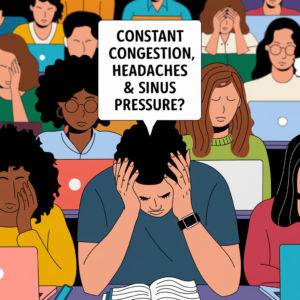The Role of Stool Softeners in Digestive Health
Stool softeners, commonly used to relieve constipation, work by increasing the amount of water in the stool, making it softer and easier to pass. While they are generally considered safe for most people, it’s important to be aware of potential side effects, including less common ones like blurred vision or dizziness.

Common Side Effects of Stool Softeners
Typical Reactions
The most common side effects of stool softeners include mild stomach discomfort, cramping, and diarrhea. These symptoms are usually temporary and resolve as the body adjusts to the medication.
Less Common Side Effects
Blurred Vision and Dizziness
While less common, some individuals may experience blurred vision or dizziness when taking stool softeners. These symptoms can be due to a variety of factors, including individual sensitivity to the medication or interactions with other drugs.
Can Stool Softeners Cause Constipation?
Ironically, overuse or prolonged use of stool softeners can lead to a dependency, where the bowel becomes less able to function normally without the medication. This can potentially lead to a worsening of constipation symptoms.
When to Consult a Healthcare Professional
Experiencing Unusual Symptoms
If you experience blurred vision, dizziness, or worsening constipation while using stool softeners, it’s important to consult a healthcare professional. They can assess whether these symptoms are related to the medication or if there’s another underlying cause.
Safe Usage and Alternatives
Your healthcare provider can also advise on the safe usage of stool softeners and suggest alternative treatments for constipation, such as dietary changes, increased fluid intake, or other types of laxatives.
Balancing Relief with Awareness
Stool softeners can be an effective solution for constipation, but like all medications, they come with potential side effects. Being aware of these, including less common ones like blurred vision or dizziness, is crucial for safe usage. Always consult with a healthcare professional for personalized advice and to ensure that you’re using these medications appropriately.
Can Stool Softeners Cause Blurred Vision or Dizziness?
While it’s uncommon, some individuals may experience blurred vision or dizziness as side effects of stool softeners. These symptoms are usually rare and may be influenced by individual sensitivities or interactions with other medications.
Is It Normal for Stool Softeners to Cause Constipation?
Ironically, prolonged or excessive use of stool softeners can lead to a dependency, resulting in the bowels becoming less active without the medication. This can sometimes worsen constipation. It’s important to use stool softeners as directed and not for extended periods without consulting a healthcare professional.
What Should I Do If I Experience Unusual Side Effects?
If you experience any unusual side effects like blurred vision, dizziness, or worsening constipation, you should stop using the stool softener and consult a healthcare professional. They can help determine the cause of these symptoms and suggest alternative treatments if necessary.
Are There Natural Alternatives to Stool Softeners?
Yes, there are natural ways to alleviate constipation, such as increasing your fiber intake, staying hydrated, and engaging in regular physical activity. Sometimes, making dietary changes can be an effective way to manage constipation without the need for medication.
How Long Can I Safely Use Stool Softeners?
Stool softeners are generally safe for short-term use. However, they are not typically recommended for long-term use unless under the guidance of a healthcare professional. It’s important to follow the dosage instructions on the packaging or as prescribed by your doctor.
Can Everyone Use Stool Softeners?
While stool softeners are safe for most people, they may not be suitable for everyone, especially those with certain medical conditions or who are taking specific medications. Always consult with a healthcare professional before starting any new medication, including over-the-counter stool softeners.
How Can I Prevent Constipation Without Medication?
Preventing constipation can often be achieved through lifestyle changes. Eating a balanced diet rich in fiber, drinking plenty of water, and regular exercise can help maintain healthy bowel movements. Additionally, establishing a regular bathroom routine can also be beneficial.
As an Amazon Associate we earn from qualifying purchases through some links in our articles.




